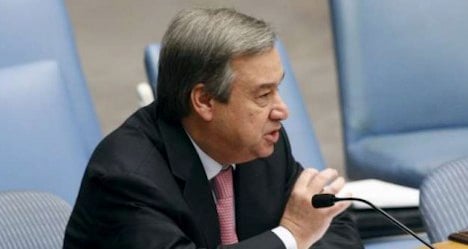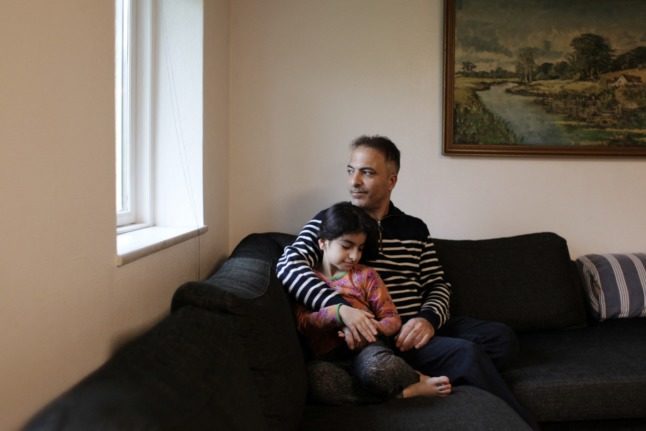"We are calling on the international community to bear its responsibility," Lebanon's Minister of Social Affairs Wael Abu Faour told diplomats gathered in Geneva, slamming the lack of assistance from outside the region.
He was speaking alongside the foreign ministers of Jordan, Turkey and Iraq at a special meeting of the UN refugee agency focused on how to better distribute the burden of the swelling Syria conflict, which since March 2011 has killed over 100,000 people and forced more than 2.1 million to flee into neighbouring countries.
"The impact of the refugee influx on the societies, economies and communities of the host countries is immense," warned UN High Commissioner for Refugees Antonio Guterres.
He demanded that the global community help Syria's overstretched neighbours, which are already "going through huge demographic changes following the refugee influx, unsettling their social and economic fabric."
The countries in the region may need direct budget support, as well as long-term development investment, Guterres said, stressing also that countries outside the region needed to take in some of the refugees.
"I call on all countries, particularly in Europe and the extended Middle East, to allow Syrians to access asylum and enjoy quality protection," he said.
If the situation in Syria deteriorates drastically, he warned, "the international community may also have to consider the humanitarian emergency evacuation of Syrian refugees to locations outside the region to help ease the pressure on neighbouring countries."
EU Humanitarian Aid Commissioner Kristalina Georgieva, who also spoke at the conference, stressed the "very severe risk of destabilisation."
"We need to keep our borders open," she said.
Pressure on Syria's neighbours has already become unbearable, their representatives said Monday.
Lebanon for example, a country of just 4.4 million people, counted by Monday evening some 769,000 Syrians registered or in the process of registering as refugees, Abu Faour told reporters, pointing out that on Monday morning the number had been 763,000.
Including all the unregistered Syrians, the actual number is around 1.3 million, he said, or about 30 percent of the Lebanese population.
Despite the massive influx and Lebanon's many appeals for international help, "nothing of significance has materialised so far," Abu Faour said.
"Not one hospital," Faour said.
"Not one school."
Lebanon is "more than disappointed," he said.
"We are frustrated — it has been more than two years of advice, of lessons, of promises and nothing," Faour said.
He warned that the "huge pressure" on his already fragile country's infrastructure, schools, health system and services was creating "antagonistic trends against Syrian refugees" and calls from some to close the borders.
While insisting Beirut would keep the borders open to anyone truly in need of humanitarian assistance, Faour acknowledged that some screening had begun to reduce the numbers of people crossing into the country.
If the international community does not step up and do more, it risks "losing a major ally in Lebanon," he said, warning "the price of shouldering the Syrian crisis is proving too much to bear."
Jordan meanwhile is now home to over 522,000 Syrian registered refugees, representing around 10 percent of the population, and the overflowing al-Zaatari camp that opened just 14 months ago has swelled to become the country's fourth largest city.
Jordanian Foreign Minister Nasser Judeh echoed the sentiment of fellow diplomats in urging donor countries to provide much-needed funds.
"The international community needs to replace words with deeds," said Turkish Foreign Minister Ahmet Davutoglu, whose country has already spent $2 billion to support its nearly 500,000 Syrian refugees — less than 10 percent of which came from international assistance.
Participants in Monday's conference also pressed for a UN Security Council resolution focused on access for humanitarian workers to Syria.
"We need to do more to ensure our aid moves across battle lines and across borders and reaches the most conflict-affected areas and the most vulnerable populations," said US Deputy Secretary of State William Burns.
"It is high time for the Security Council to speak with one voice to demand unfettered humanitarian access," he told the assembly.



 Please whitelist us to continue reading.
Please whitelist us to continue reading.
Member comments